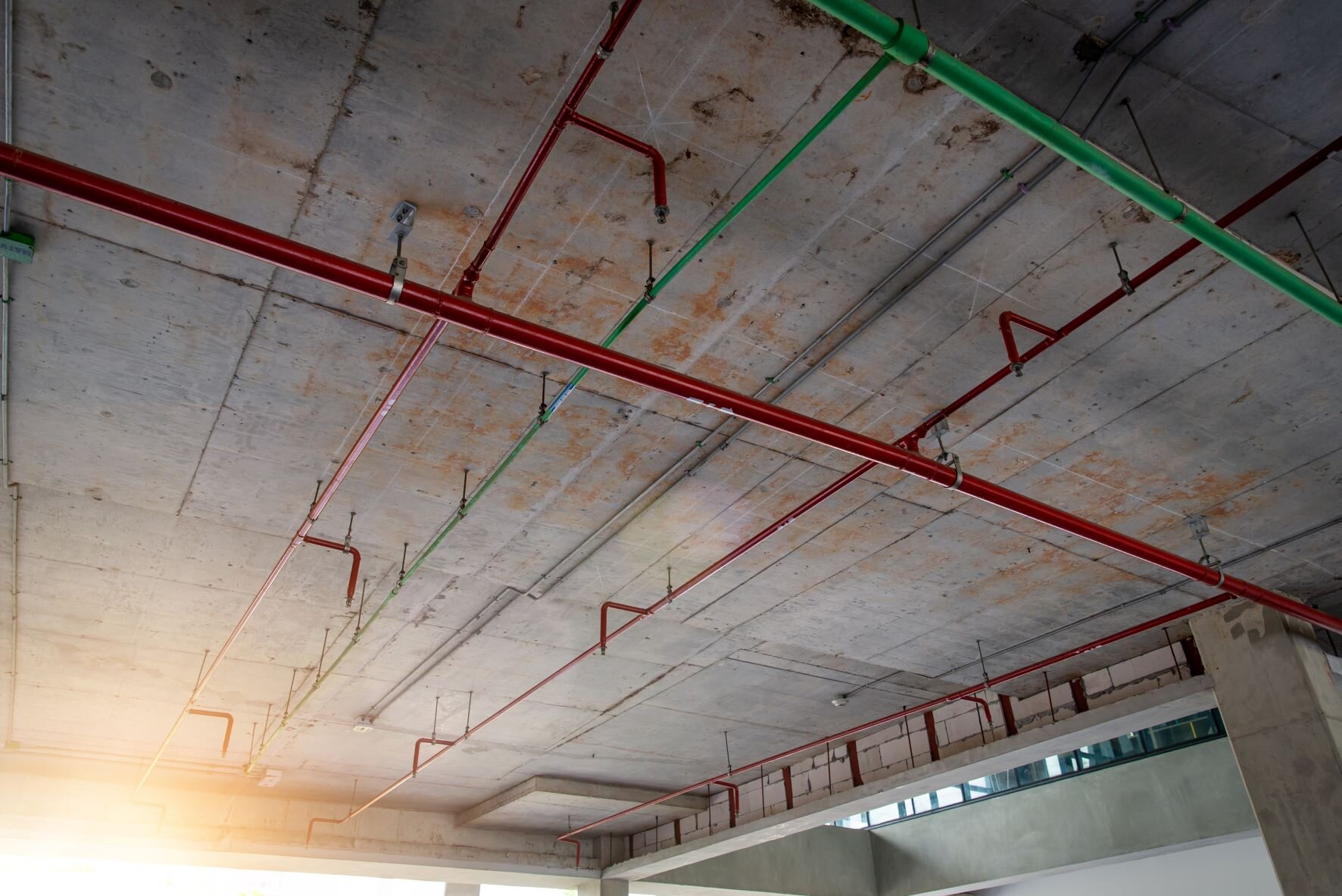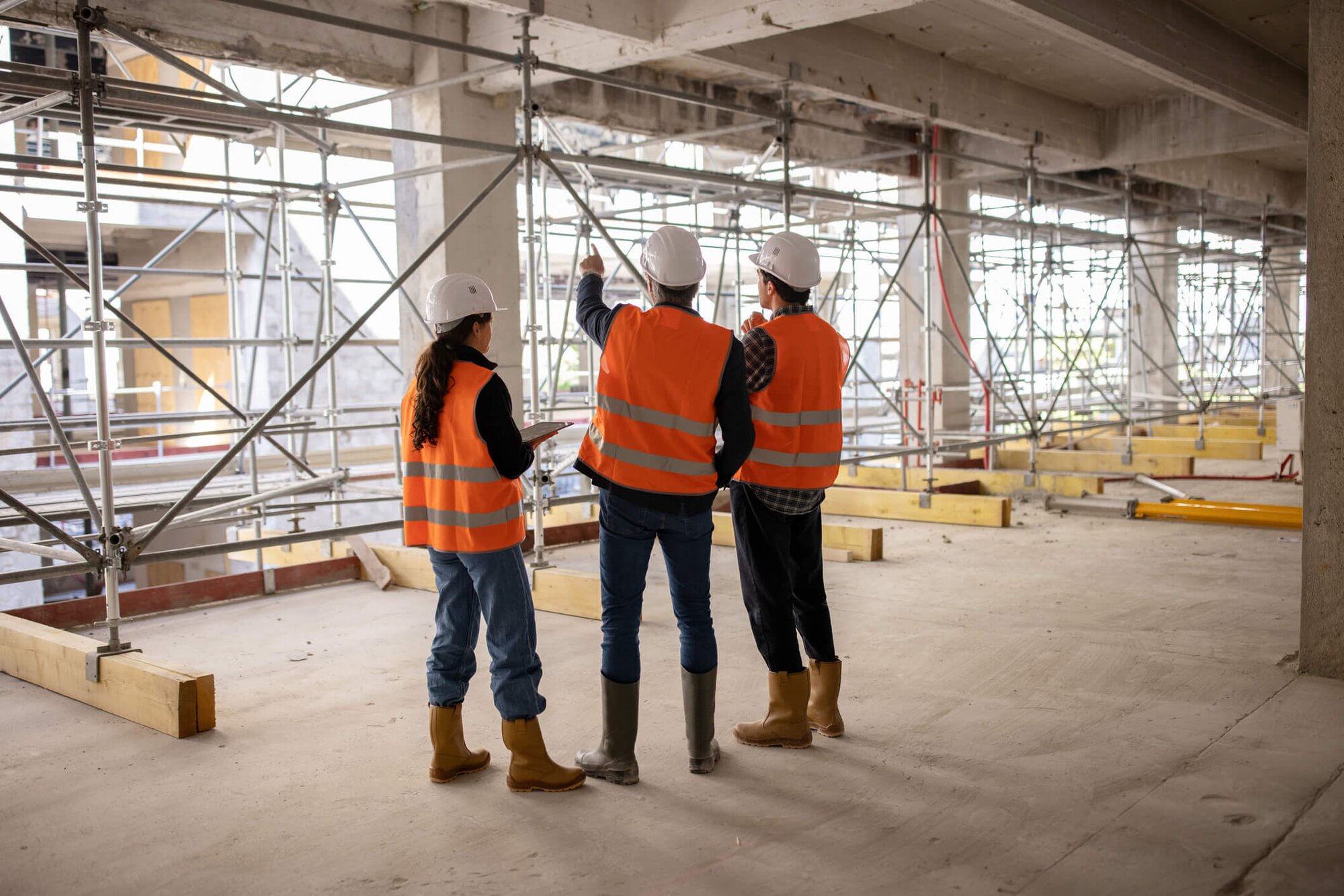From the outside, it may seem like the main difference between residential and commercial contractors is where they work. Plumbing, electricity, and HVAC service operate according to the same basic principles no matter where they’re installed. But large-scale structures like hospitals, schools, office buildings and sports or event facilities present unique challenges based on their size, capacity and complexity. Every element of a residential job is multiplied for commercial contractors.
Commercial contractors face and overcome those monumental challenges every day, and the stakes are often high. The business costs of lost or interrupted service can add up quickly. Even more importantly, public health and safety are threatened when hospitals, educational facilities and utilities lose service.
The highly specialized skills, experience and equipment that commercial contractors rely on in their day-to-day operations distinguish them from their counterparts in residential and light commercial service. It takes vision, attention to detail and precision, among other skills, to meet the demands of heavy commercial HVAC, plumbing and electrical service.
When the full range of business, from customer relationships and sales and marketing to service agreements and warranties, is taken into account, the points of divergence only increase. The day-to-day and year-to-year experiences of residential service providers and large commercial contractors can be so different that they hardly seem to be in the same industry.
So why would they rely on the same software to manage their operations?
Commercial complexities
The complexity and scale of commercial jobs means commercial contractors have very different workflows than residential contractors. Compared to the residential sector’s typical job (a seasonal repair or replacement that takes one or two techs a few hours to complete), a commercial project can require an entire team of technicians to work on the same site for several days or even several weeks. Residential calls are typically scheduled a day or two in advance, and price quotes can be put together in a few minutes. Commercial projects could include a lengthy bidding process and may require significant budget adjustments. In addition, the number of stakeholders involved in a given project — owners, developers, property managers, architects, regulatory agencies — can add several layers of communication and accountability to a commercial job.
The complexities start well before your team reaches the job site. Some of the special demands on commercial contractors include:
- Quoting and bids: Residential field techs can complete a quote in a matter of minutes with either a quick call back to the office or an automated process. For large commercial jobs, the quoting process is lengthier and more complex, requiring fieldwork, calculation and pricing approval. The scale and higher costs mean that commercial projects simply have more moving parts to align.
- Project management: The complexity and length of commercial jobs means that efficient, streamlined management of field operations, labor, and administrative responsibilities can be the difference between success and failure.
- Financial accuracy: Accuracy and transparency are always crucial regarding financials, but the stakes are even higher when dealing with corporate or government entities. Additionally, because commercial projects tend to be larger and take longer, invoicing and accounting help you avoid oversights that can hurt your bottom line or have a negative impact on important business relationships.
- Materials: Commercial projects often use high-grade materials and equipment, and many corporate or government jobs have standardized requirements. Knowledge, sourcing and accessibility are key to winning and successfully completing many projects.
- Procurement: Because of the wide range of materials used and the specialized needs of commercial customers, procurement is often a challenge for commercial contractors.
- One to many: Residential contractors work with a single homeowner. Usually one tech works for less than a day on one job for that customer. Commercial contractors, on the other hand, work with multiple stakeholders and deploy crews of techs for each job, which may include multiple sites or properties. Longer job cycles require site security and maintenance.
- Service agreements: A major percentage of commercial contracting work (and revenue) is generated by complex ongoing service and maintenance agreements. These agreements are the life’s blood of commercial contractors. For residential businesses, they are as simple as an annual tune-up.
The right option
The range of service and project management technology available for HVAC, plumbing and electrical professionals has exploded in recent years. Picking the right solution for your company may seem impossible. And the wrong choice could make an already complicated workflow even more cumbersome and less efficient, costing you time, money and reputation.
We designed BuildOps to be the all-in-one operational software for modern commercial contractors. Our industry-leading suite includes tools that help busy professionals manage all the complex aspects of a job from start to finish, from quoting and pricing to dispatch, field service, maintenance agreements, accounting and more.
To find out if BuildOps is the right platform to elevate your commercial contracting service, contact us to schedule a demo.



